
-
Citric acid monohydrate CAS:5949-29-1
Product details Citric Acid Monohydrate CAS:5949-29-1 as Food Preservative origin from China. Anhui Sinotech company strictly select GMP products, support customer registration , and provide professional services to chemical customers in the global market. Purchase Citric Acid Monohydrate CAS:5949-29-1,inquiry Anhui Sinotech . Name: Citric Acid Monohydrate CAS No.: 5949-29-1 Appearance: Colorless crystal or white crystalline powder Molecular formula: C6H10O8 Molecular Weight: 210.1388 Melting point: 135-152℃ Boiling point: 309.6°C at 760 mmHg Flash point: 155.2°C Water soluble: 1630 g/L (20℃) Vapor pressure: 5.73E-05mmHg at 25°C molecular structure: Description: Citric Acid Monohydrate CAS:5949-29-1 is an organic compound with a molecular formula of C6H10O8. It is mainly used in food and beverage industry as an acid flavor agent, flavoring agent, preservative and fresh-keeping agent. It is also used as antioxidant, plasticizer and detergent in chemical industry, cosmetics industry and washing industry. Application: Specification: CERTIFICATE OF ANALYSIS ITEM UNIT STANDARD DATA ACTUAL DATA DESCRIPTION --- COLOURLESS, CRYSTALS, WHITE AS STANDARD IDENTIFICATION & SOLUBILITY --- PASS TEST PASS TEST CLARITY & COLOR OF SOLUTION --- PASS TEST PASS TEST CONTENT % 99.50– 100.5 99.60 WATER % ≤ 8.8 8.40 BARIUM --- PASS TEST PASS TEST CALCIUM --- ≤ 200 ≤ 200 IRON PPM LESS THAN 10 <5.0 ARSENIC PPM LESS THAN 1 <1.0 HEAVY METALS PPM LESS THAN 5 <5.0 OXALATE PPM LESS THAN 100 <100 CHLORIDE PPM LESS THAN 50 <10 READILY CARBONISABLE SUBSTANCES --- PASS TEST PASS TEST SULPHATED ASH % LESS THAN 0.05 <0.05 SULPHATE PPM LESS THAN 150 <10 Package:Tags : Citric Acid Monohydrate BP
-
Calcium acetate CAS:62-54-4
Calcium acetate CAS 62-54-4 is white crystalline particle or crystalline powder, with slightly propionic acid odor. Appearance : White crystalline powderTags : Calcium acetate CAS:62-54-4 Calcium acetate factory HS code 29152990 Food preservative Feed preservative
-
Calcium Propionate CAS:4075-81-4
Food additives Preservative Calcium Propionate Calcium propionate CAS:4075-81-4 is white crystalline granule or crystalline powder. Odorless or slightly propionic acid odor, hygroscopic, soluble in water, insoluble in alcohol. Specification: Calcium propionate Anhydrous pharma grade Calcium propionate Monohydrate Industrial grade Calcium propionate Monohydrate Food grade FCC Calcium Acetate Monohydrate Pharma E281 * Please refer to Certificate of Analysis for lot specific data. Application: 1) The bacteriostatic effect of calcium propionate liquid wet acid preservative is affected by PH of environment. The minimum inhibitory concentration was 0.01% at PH5.0 and 0.5% at PH6.5. In acidic medium, it has strong inhibition effect on all kinds of molds, aerobic bacillus or gram-negative bacillus. It has special effect on preventing the production of aflatoxin, but has almost no effect on yeast. In addition, it also acts as a preservative for food. 2) Used as food preservative and mildew prevention agent, it has extensive inhibitory effect on mold, yeast and bacteria 3) Used as an analytical reagent 4) Calcium propionate is also an acid food preservative whose bacteriostatic effect is affected by the Ph of the environment. The minimum inhibitory concentration was 0.01% at Ph 5.0 and 0.5% at Ph 6.5. In acidic medium, it has strong inhibition on all kinds of molds, Gram-negative bacillus or aerobic bacillus. It has special effect on preventing the production of aflatoxin, but has almost no effect on yeast. In the food industry, mainly used in vinegar, soy sauce, bread, pastries and soy products, the maximum use (propionic acid, the same below)2.5g/kg; The maximum usage in raw wet products is 0.25g/kg. Can also be used as feed mildew prevention agent. 5) Used as preservative for breads, pastries and cheeses, and as a mildew inhibitor for feed. As a food preservative, calcium propionate is mainly used in bread because sodium propionate raises the ph of bread and delays the fermentation of raw noodles. Sodium propionate is often used in pastries because the leavening of pastries is done with a synthetic leavening agent and there is no yeast development problem caused by pH rise. As a feed preservative, sodium propionate is better than calcium propionate. But calcium propionate is more stable than sodium propionate. Propionate in food in addition to bread, pastry, cheese, etc., can also be used in soy sauce to prevent mildew, inhibit re-fermentation. In medicine, propionate can be used as a powder, solution and ointment to treat diseases caused by parasitic molds of the skin. Ointment (liquid) contains 12.3% sodium propionate, powder 15% calcium propionate. Packing: 25kg/bagTags : Calcium Propionate CAS:4075-81-4 food preservative Anti-mildew agent Calcium Propionate factory Calcium dipropionate
-
Natamycin CAS:7681-93-8
Food additives Preservative Natamycin Natamycin CAS:7681-93-8 is almost odorless white to creamy yellow crystalline powder, the crystalline form of natamycin is very stable. Very low solubility in water and most organic solvents. At room temperature, 1 liter of pure water is soluble about 50mg, which is a low solubility ideal for surface treatment of food. When the pH is below 3 or above 9, the solubility of natamycin is greatly improved, but its stability is also decreased. Natamycin has a slightly higher solubility in some organic solvents, such as n-butanol, propylene glycol, etc., but it is necessary to consider whether these solvents can be used in the food produced. Specification: Natamycin pharma grade Natamycin Feed grade Natamycin Food grade * Please refer to Certificate of Analysis for lot specific data. Application: 1) Natamycin is widely used in cheese, meat products, pastries, fruit juices and other foods around the world. The product is refined from Streptomyces natalensis by deep fermentation and multi-step extraction process. The preparation is a mixture of 50% natamycin and 50% lactose. 2) Natamycin is anti-mildew agent. It has good anti-mildew effect when it is used on the surface of food exposed to air where mildew is easy to prolifze. The use of fermented cheese can selectively inhibit the reproduction of mold and allow the normal growth and metabolism of bacteria.The product should be stored in a well sealed, no direct sunlight, < 15℃. 3) Natamycin is An antifungal polyene antibiotic that inhibits fungal growth by specifically binding to ergosterol. Unlike nystatin and Philippinomycin, natamycin does not alter membrane permeability. Packing: 25kg/drumTags : Natamycin Natamycin Factory CAS:7681-93-8 Pimaricin fungistat food preservatives
-
N-(p-Aminobenzoyl)glutamic acid CAS NO.4271-30-1
Product details N-(p-Aminobenzoyl)glutamic acid CAS NO.4271-30-1 Payment:T/T Min order:1000kgs Lead time:7-15 daysTags : N-(p-Aminobenzoyl)glutamic acid CAS NO.4271-30-1 intermediate N-(p-Aminobenzoyl)glutamic acid Hot sale N-(p-Aminobenzoyl)glutamic acid N-(p-Aminobenzoyl)glutamic acid powder N-(p-Aminobenzoyl)glutamic acid supplier
-
Alginic acid CAS:9005-38-3
Introduction of Sodium Alginate Sodium Alginate White Powder Food Additive Thickener Stabilizer Emulsifier As a thickener for beverages and dairy products, sodium alginate has unique advantages in thickening: the good fluidity of sodium alginate makes the added beverage smoother; and it can prevent the viscosity drop during product disinfection. When using sodium alginate as a thickener, products with larger molecular weight should be used as much as possible, and Ca should be added in an appropriate amount. Can greatly improve the viscosity of sodium alginate. (1) Bread, cake, noodles, macaroni, improve the utilization rate of raw materials, and improve the taste and flavor. The dosage is 0.5%. (2) Aquatic products, canned food, dried laver, etc., strengthen the organization, maintain the fresh taste, and enhance the taste (3) Seasoning sauce, tomato sauce, mayonnaise, jam, cream, soy sauce, thickener and stabilizer. (4) Fruit juice, alcohol, etc., dispersing agent. (5) Ice cream, caramel, improve taste and stability. (6) Frozen food, processed aquatic products, surface jelly (preservation) package 25kg/bagTags : Alginic acid Alginic acid sodium salt CAS:9005-38-3 Alginic acid factory foood additive adhesive
-
Citric acid CAS:77-92-9
Food additives Preservative Citric acid Citric acid CAS:77-92-9 is White translucent crystals or powder. Easily soluble in water and ethanol, soluble in ether.It is a natural component and intermediate product of physiological metabolism in animals and plants, and is also one of the most widely used organic acids in fields such as food, medicine, and chemical engineering. It is a colorless, transparent or semi transparent crystal, or a granular or particulate powder, odorless, and although it has a strong sour taste, it is pleasant with a slight aftertaste. Gradually weathered in warm air, slightly deliquescent in humid air. Specification: Citric acid pharma grade Citric acid Industrial grade Citric acid Food grade * Please refer to Certificate of Analysis for lot specific data. Application: 1)Widely used as an acid flavoring agent and pharmaceutical additive in food and beverages. It can also be used as raw materials and additives for cosmetics, metal cleaner, mordant, non-toxic plasticizer and boiler scale inhibitor. Its main salt products include sodium citrate, calcium, and ammonium salts. Sodium citrate is a blood anticoagulant, while ferric ammonium citrate can be used as a blood tonic. 2)Citric acid is the most functional and versatile acid flavoring agent. It has high solubility and strong chelating ability to metal ions, and can be used in various foods. It can be used in moderation according to production needs. In addition, this product can also be used as an antioxidant synergist, synergist for complex potato starch bleach, and preservative. 3) Used as experimental reagents, chromatographic analysis reagents, biochemical reagents, and also for the preparation of buffer solutions. Used in the food industry, especially as an acidifier, pH buffer, and as a preservative along with other compounds. In the detergent industry, it is an ideal substitute for phosphate. Boiler chemical cleaning acid cleaning agent, boiler chemical cleaning rinse agent. Mainly used as an acid flavoring agent for food, as well as in the preparation of pharmaceutical coolants and detergents 4)Mainly used as an acid flavoring agent for food, as well as in the preparation of pharmaceutical coolants, detergent additives, etc Packing: 25kg/bagTags : Citric acid CAS:77-92-9 food additive Citric acid factory acidulant 2-Hydroxy-1,2,3-propanetricarboxylic acid
-
5-Ethylpyridine-2,3-dicarboxylic acid diethyl ester CAS NO.105151-39-1
Product details 5-Ethylpyridine-2,3-dicarboxylic acid diethyl ester CAS NO.105151-39-1 Payment:T/T Min order:1000kgs Lead time:7-15 daysTags : Wholesale 5-Ethylpyridine-2,3-dicarboxylic acid diethyl ester intermediate 5-Ethylpyridine-2,3-dicarboxylic acid diethyl ester 5-Ethylpyridine-2,3-dicarboxylic acid diethyl ester raw material 5-Ethylpyridine-2,3-dicarboxylic acid diethyl ester CAS NO.105151-39-1 Manufacture of 5-Ethylpyridine-2,3-dicarboxylic acid diethyl ester
-
5-Methylpyridine-2,3-dicarboxylic acid dimethyl ester CAS NO.112110-16-4
Product details 5-Methylpyridine-2,3-dicarboxylic acid dimethyl ester CAS NO.112110-16-4 Payment:T/T Min order:1000kgs Lead time:7-15 daysTags : 5-Methylpyridine-2,3-dicarboxylic acid dimethyl ester CAS NO.112110-16-4 5-Methylpyridine-2,3-dicarboxylic acid dimethyl ester CAS NO.112110-16-4 Hot sale 5-Methylpyridine-2,3-dicarboxylic acid dimethyl ester 5-Methylpyridine-2,3-dicarboxylic acid dimethyl ester solid 5-Methylpyridine-2,3-dicarboxylic acid dimethyl ester 25kg/bag
-
Potassium Citrate CAS:866-84-2
Food additives Preservative Potassium Citrate Potassium Citrate CAS:866-84-2 , also known as potassium citrate and tripotassium citrate. A citrate with the formula C6H5K3O7 and a molecular weight of 306.39500. It is a white or yellowish crystalline particle or crystalline powder that is odorless, salty, cool, deliquable, soluble in water and almost insoluble in ethanol. Relative density 1.98. Heat to 230 ℃ to melt and decompose. Specification: Potassium Citrate pharma grade Potassium Citrate Industrial grade Potassium Citrate Food grade * Please refer to Certificate of Analysis for lot specific data. Application: 1)Acidity regulator, chelator, stabilizer, etc. Our regulation potassium citrate can be used in all kinds of food, according to the production needs of appropriate use. Medically, it can be used to control uric acid or cystine from or in kidney stones, and to prevent hypokalemia and alkalinized urine. 2)It is used as buffer, chelating agent, stabilizer, antioxidant, emulsifier and flavoring agent in food industry. Potassium citrate can also be used in milk and dairy products, jelly, jam, meat, canned water gel snacks, cheese emulsification, citrus preservation, etc. It is used in the pharmaceutical industry for hypokalemia and potassium deficiency and alkalization of urine. 3) Used as preservative, stabilizer and pH buffer, etc. Our COUNTRY REGULATION CAN BE USED FOR ALL KINDS OF FOOD, NEED USE ACCORDING TO PRODUCTION. Packing: 25kg/bagTags : tripotassium citrate anhydrous CAS:866-84-2 Potassium Citrate factory food addtive acidity regulator
-
3-bromo-1-(3-chloro-2-pyridinyl)-1H-Pyrazole-5-carboxylic acid CAS NO.500011-86-9
Product details 3-bromo-1-(3-chloro-2-pyridinyl)-1H-Pyrazole-5-carboxylic acid CAS NO.500011-86-9 Payment:T/T Min order:1000kgs Lead time:7-15 daysTags : Wholesale 3-bromo-1-(3-chloro-2-pyridinyl)-1H-Pyrazole-5-carboxylic acid 3-bromo-1-(3-chloro-2-pyridinyl)-1H-Pyrazole-5-carboxylic acid CAS NO.500011-86-9 Intermediate of chloramphenicol 3-bromo-1-(3-chloro-2-pyridinyl)-1H-Pyrazole-5-carboxylic acid raw material 3-bromo-1-(3-chloro-2-pyridinyl)-1H-Pyrazole-5-carboxylic acid supplier
-
Lambda cyhalthrin acid CAS NO.72748-35-7
Product details Lambda cyhalthrin acid CAS NO. 72748-35-7 Payment:T/T Min order:1000kgs Lead time:7-15 daysTags : Hot sale Lambda cyhalthrin acid Lambda cyhalthrin acid solid Intermediate of pyrethroid acid Manufacture of Lambda cyhalthrin acid Lambda cyhalthrin acid supplier Lambda cyhalthrin acid raw material
 call us :
call us :  send a message :
send a message : 









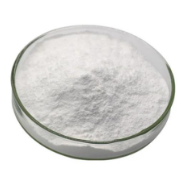
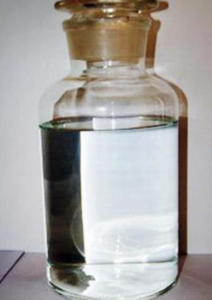
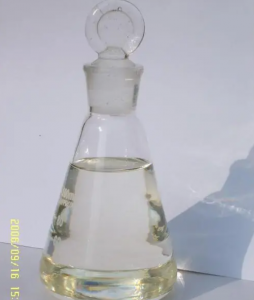
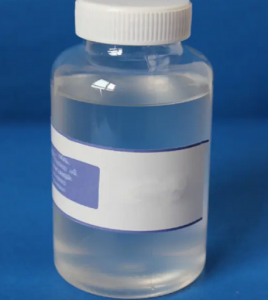
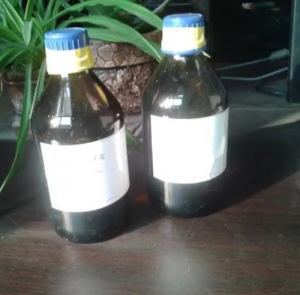
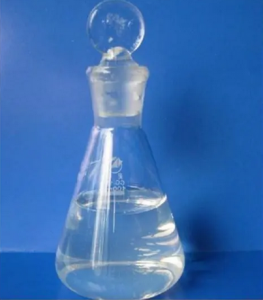














 online service
online service +8613866722531
+8613866722531

 +8613866722531
+8613866722531